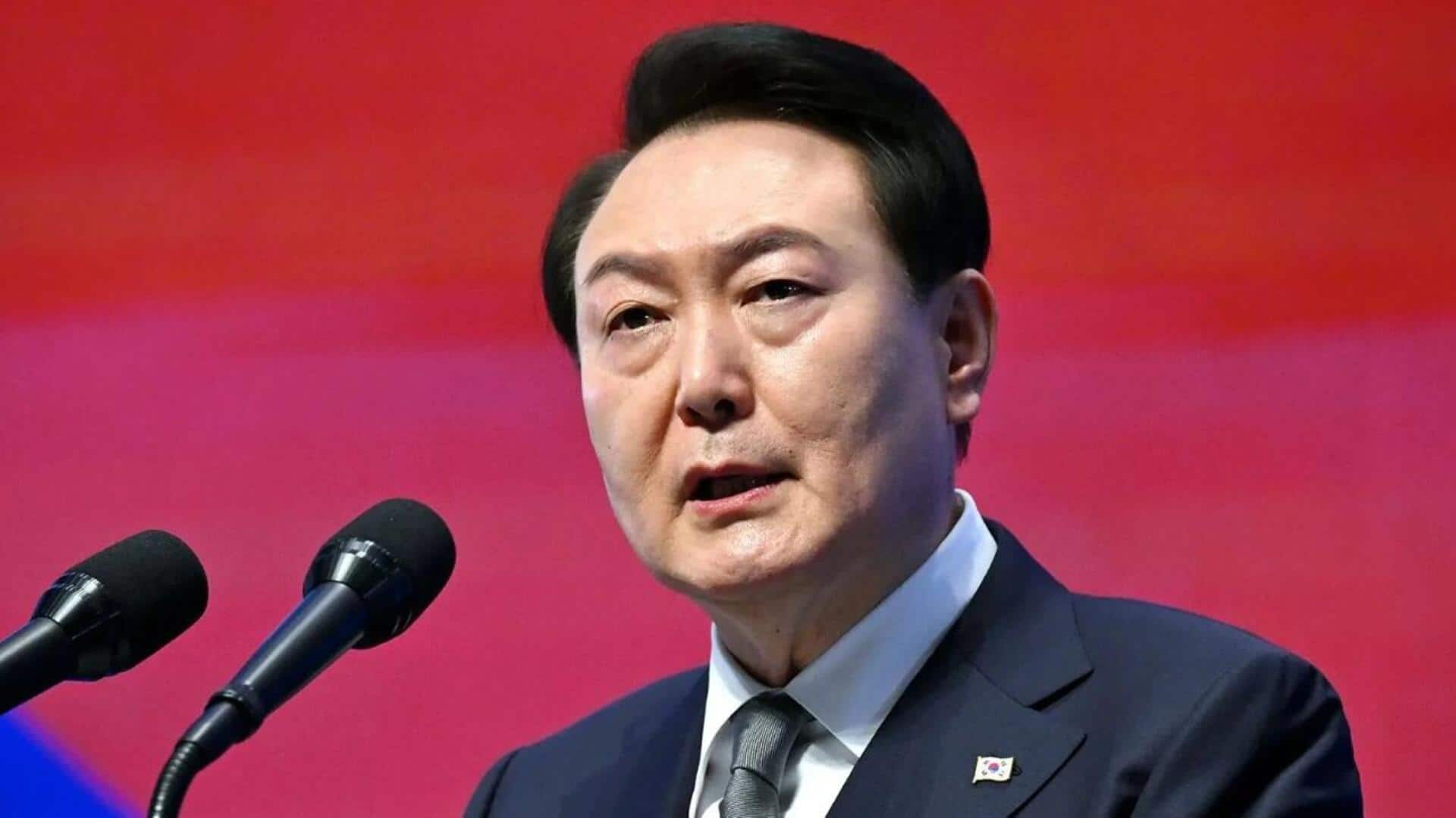
South Korean President declares emergency martial law amid political crisis
What's the story
In a televised address, South Korean President Yoon Suk Yeol declared "emergency martial law," accusing opposition parties of undermining the government and sympathizing with North Korea. Yoon said that this measure was necessary to protect the nation's free and constitutional order. However, he did not specify what measures would be implemented under martial law.
Accusations
Yoon accuses opposition of paralyzing legislative process
Yoon accused the Democratic Party, which has a parliamentary majority, of paralyzing the legislative process. He pointed to their recent motion to impeach top prosecutors and rejection of a government budget proposal as contributing factors to the crisis. Since taking office in May 2022, Yoon has faced resistance from the opposition-controlled National Assembly.
Counterclaims
Opposition alleges martial law plot, Yoon dismisses claims
The liberal opposition, led by the Democratic Party of Korea, had earlier accused Yoon of planning to impose martial law to evade impeachment over alleged abuse of power. Opposition leader Lee Jae-myung had warned that martial law could lead to "a perfect dictatorship." However, these allegations were dismissed by Yoon's office as "fabricated propaganda."
Tensions rise
Prime Minister refutes claims, Yoon skips parliamentary opening
Prime Minister Han Duck-soo also refuted claims that South Koreans would accept such a move. The strained relationship between Yoon and the opposition reached a breaking point when Yoon skipped the opening ceremony of a new parliamentary term. His office cited ongoing parliamentary probes and impeachment threats as reasons for his absence.
Polarization
Martial law declaration polarizes South Korea's political landscape
Opposition lawmakers allege that Yoon has undermined democratic processes by vetoing parliamentary bills and appointing loyalists to key military positions. The martial law declaration has further deepened the divide in South Korea's political landscape. Experts have warned that this divide could erode public trust in democratic institutions. Choi Jin, head of the Institute for Presidential Leadership, described the situation as "a political war."